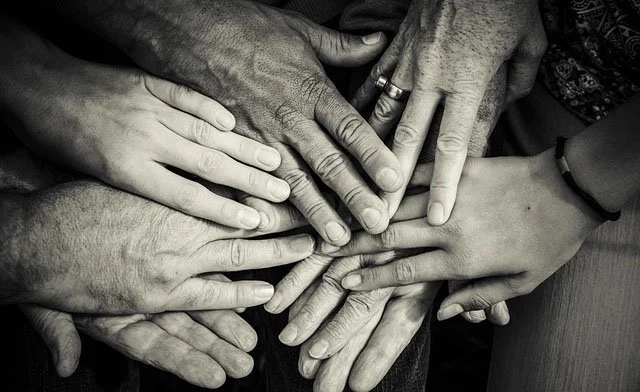Grieving Resources
Image by giselaatje from Pixabay
Grieving RESOURCES FOR INDIVIDUALS STRUGGLING WITH the loss of a loved one to suicide
The loss of a loved one to suicide can be devastating, and the grief that follows may feel overwhelming. It is important to remember that you don’t have to carry this burden alone. Below are resources designed to support individuals grieving after a suicide, helping you navigate the complex emotions of loss and find a path toward healing.
1. Crisis and Emotional Support for Grieving individuals
In the aftermath of losing someone to suicide, it can be helpful to talk to a trained professional. If you need immediate emotional support, these hotlines are available:
National Suicide Prevention Lifeline (U.S.): 1-800-273-TALK (8255) or 988
Offers emotional support for anyone in distress, including those grieving suicide loss.Crisis Text Line: Text HOME to 741741
Text a trained counselor for support in managing the overwhelming emotions that come with loss.Samaritans (UK): 116 123
Offers a safe place to talk any time about anything that’s troubling you.
These organizations provide emotional support and can guide you to local mental health resources, ensuring you're not alone during your toughest moments.
2. THERAPY AND PROFESSIONAL HELP
Talking to a professional therapist can help you work through the stages of grief, especially when dealing with complicated emotions surrounding suicide:
Traditional Therapy:
Getting professional support can make a significant difference in managing mental health challenges. Talk to a licensed professional regarding your challenges and take the steps to better manage your mental health.
Local Mental Health Clinics & Hotlines:
Many local communities have crisis centers, community mental health clinics, or suicide prevention programs. Check with your local health department for more information.Online Therapy:
BetterHelp: Offers online therapy with licensed professionals. For those struggling with mental health issues, BetterHelp provides accessible care from the privacy of your home.
Talkspace: Another platform for online therapy, including text, video, and audio messaging with a licensed therapist.
Grief counseling can help you make sense of the complicated emotions that arise after a suicide and offer tools for navigating your healing journey.
3. Support groups for suicide loss
Grieving a suicide loss is a unique experience, and connecting with others who have faced similar loss can provide solace. The following resources offer both online and in-person support groups:
American Foundation for Suicide Prevention (AFSP) - Healing After a Suicide Loss: Provides an extensive list of support groups and resources for survivors of suicide loss.
Alliance of Hope: A specialized online community and forum offering support to individuals who have lost a loved one to suicide. The site also includes resources on healing after a loss.
Survivors of Suicide (SOS): An international directory of support groups specifically designed for those who have lost a loved one to suicide.
These groups provide safe spaces for individuals to share their grief and connect with others who understand the complexities of losing someone to suicide.
4. Online Resources and Articles on Healing
Reading about others’ experiences with suicide loss can provide insight and comfort. The following websites offer articles, personal stories, and resources for healing after suicide:
AFSP’s Resources for Survivors of Suicide Loss:
A hub of information, including personal stories and resources, for people grieving after a suicide loss.GriefShare:
Offers a network of support groups and resources, including guides on how to cope with grief and loss.
5. Books for Grieving After Suicide
Books can provide comfort and guidance through the grieving process. Here are some recommended readings that may help you process your emotions:
“No Time to Say Goodbye: Surviving the Suicide of a Loved One” by Carla Fine:
A heartfelt and insightful book for survivors of suicide loss, offering both personal stories and practical advice.“Grief After Suicide: Understanding the Consequences and Caring for the Survivors” by John R. Jordan and John L. McIntosh:
A comprehensive look at the impact of suicide loss and the unique aspects of grief it creates.
These books offer personal reflections and professional insights to help you navigate the grieving process and move forward with healing.
6. Coping Strategies for Suicide Loss
Everyone grieves differently, but these self-care strategies may help you cope with overwhelming emotions after losing someone to suicide:
Journaling:
Writing down your thoughts and feelings can help you process emotions and create a space for healing.Connecting with Nature:
Spending time in nature can provide a calming, restorative experience during times of emotional turmoil.Talking to a Trusted Friend or Family Member:
Lean on the support of those around you. Sometimes just talking about your grief can provide relief.
Finding Support During Grief
Grieving the loss of a loved one to suicide is incredibly difficult, but it is important to remember that you don’t have to go through this journey alone. Whether through a support group, a counselor, or online resources, help is available. Reach out, share your story, and allow yourself the time and space to heal. There is no timeline for grief, but with support, you can find a way forward.


